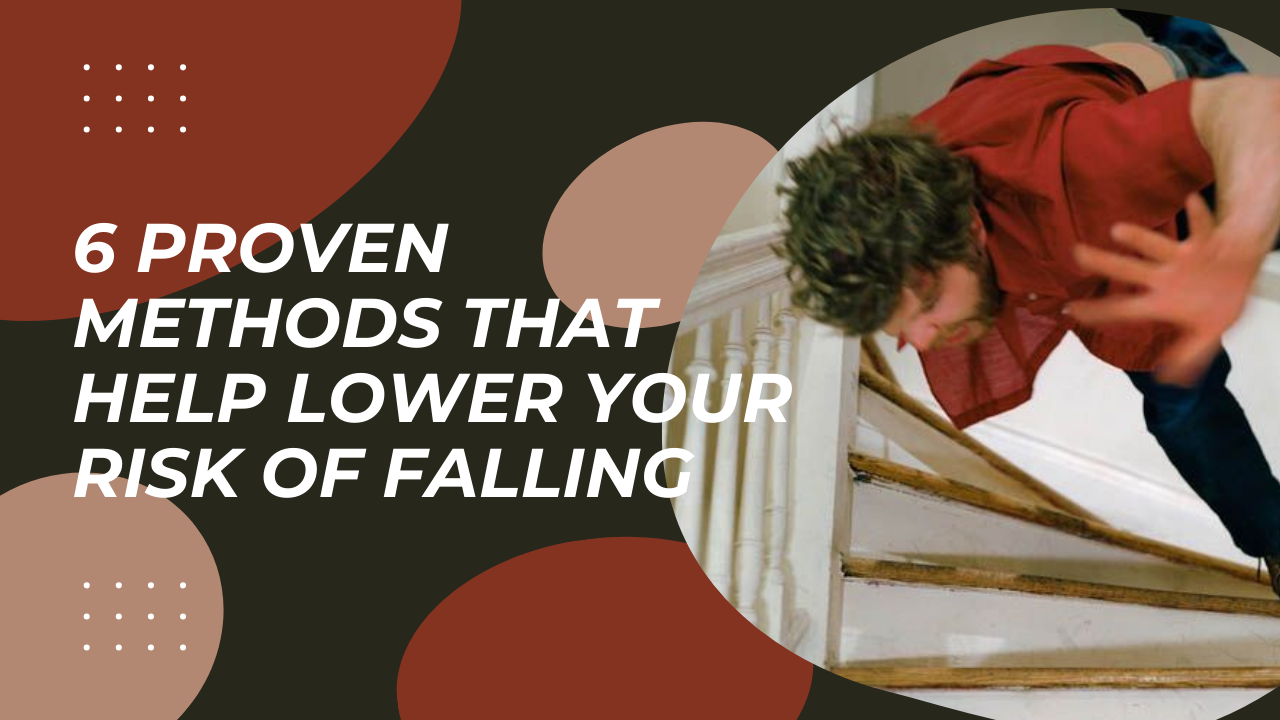Every year, one in every three Australians aged 65 and up falls. It is currently the primary cause of hospitalisation in our nation, with the bulk of falls happening in your own home.
Fortunately, there are numerous steps you can take to minimise your chance of falling or the seriousness of your injuries if you do fall. Here are six recommendations to get you started.
- Consult Your Physician
A conversation with your doctor is a smart place to start if you want to lower your risk of falling. They can examine health issues that may be affecting your capacity to move safely, such as nutrition, exercise, and any potential drug adverse effects. They can also collaborate with an occupational therapist or physiotherapist to help you develop a fall prevention plan.
Other health checks to consider include having your eyes tested, as poor eyesight can impair your ability to detect trip risks, and visiting a podiatrist. Foot ailments are a major cause of falls in the elderly, so it's critical to take good care of your feet.
- Examine How Secure Your Home Is
A fall at home can be caused by one of three types of hazards:
- Inadequate lighting: Make sure each room has adequate illumination to avoid stumbling over objects, notably between your bed and the toilet for nighttime use. Movement-sensitive lights near stairwells and hallways can also ensure your safety as you move across your residence.
- Slipping: Bathroom floors can be slippery when they're wet, so installing grab bars and anti-slip flooring in showers and bathtubs is advisable. Wipe up spills instantly in the kitchen and bathroom to avoid creating risks on tiled surfaces.
- Stumbling: clearing debris from corridors, stairwells, and doorways will help you avoid tripping. Replace worn areas of carpet and lose threads that can trip you up, and ensure sure electrical cables are tucked safely out of the way.
- Take Care Of Your Health
Malnourishment and low body mass increase the probability of falling because they promote fragility, poor coordination, slow response times, bone loss, and muscle weakness.
This means that maintaining your general health and well-being is critical to avoiding falls. Consume a variety of foods high in fibre, vitamins, minerals, and other nutrients, such as vegetables, fruits, whole grains, lean meats, dairy products, and nuts. Drink lots of fluids during the day to prevent dehydration, and limit your alcohol intake.
- Get Up And Move Around
Exercise is truly the best medicine! The more you exercise, the more likely it is that your joints and muscles will remain healthy. It can also help you enhance your sense of balance, allowing you to avoid falls and serious injuries.
There are numerous options to acquire regular exercise, ranging from senior-specific group programmes to bush-walking clubs, joining a local gym, or simply going for a walk in your neighbourhood. Consult a physiotherapist if you are concerned about choosing a workout that is appropriate for your physical ability. They can design an exercise programme that is tailored to your specific needs, goals, and restrictions.
- Dress Safely
Because our shoes come into proximity to the ground, they should enhance your stability, posture, balance, and safety. Wear shoes that are flexible, and pleasant, fit your feet properly, have enough room in the toe area, have low or no heels, and have a slip-resistant outsole. Wearing stockings or loose slippers around the house can also cause you to slide.
Also, avoid wearing a shirt that is too long or drags on the floor while you walk, such as a dressing gown, long scarves, or too-length slacks, as this may increase your chances of tripping. Hip guards are also worn by certain persons to help avoid fractures in the case of a fall.
- Explore Assistive Technology
There are numerous methods available to assist you in performing daily chores without the risk of falling. This includes:
This includes:
- Motion-sensor alarms can also be purchased, which alert someone if you fall without having to touch a button.
- Sturdy shower benches so you can sit if you become wobbly on your feet while upright in the shower.
- Grab rails that may be fitted throughout the home to provide greater stability as you move around, featuring non-slip models for the lavatory.
- Grab rails and raised seats for restrooms so that you can attend to your necessities comfortably and safely without the risk of a fall.
- Walkers to provide security and stability as you stroll around your house and community.
